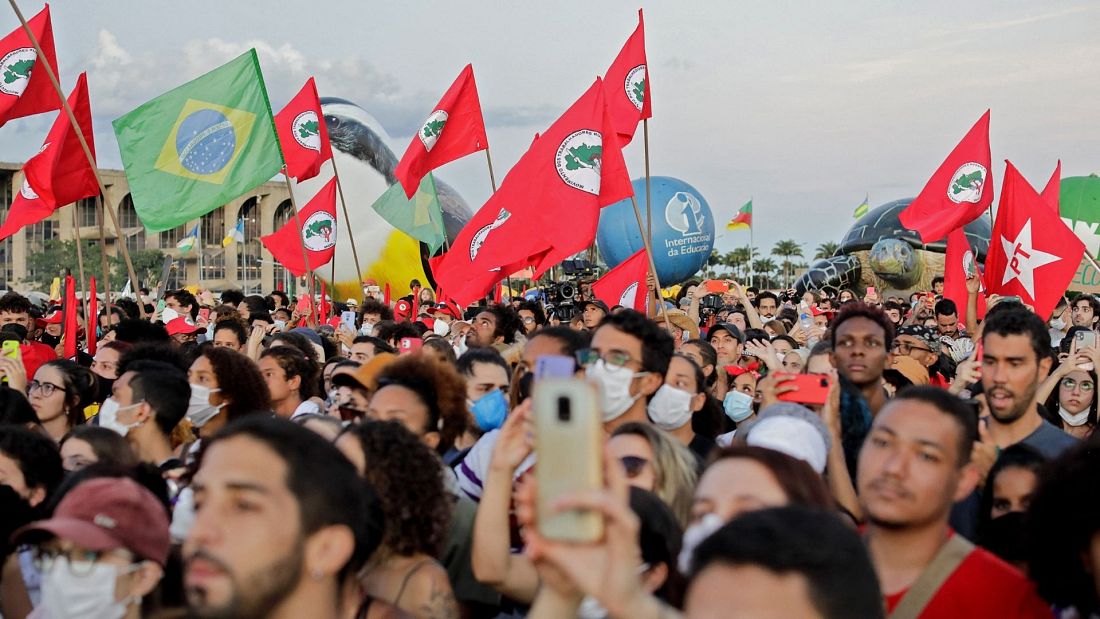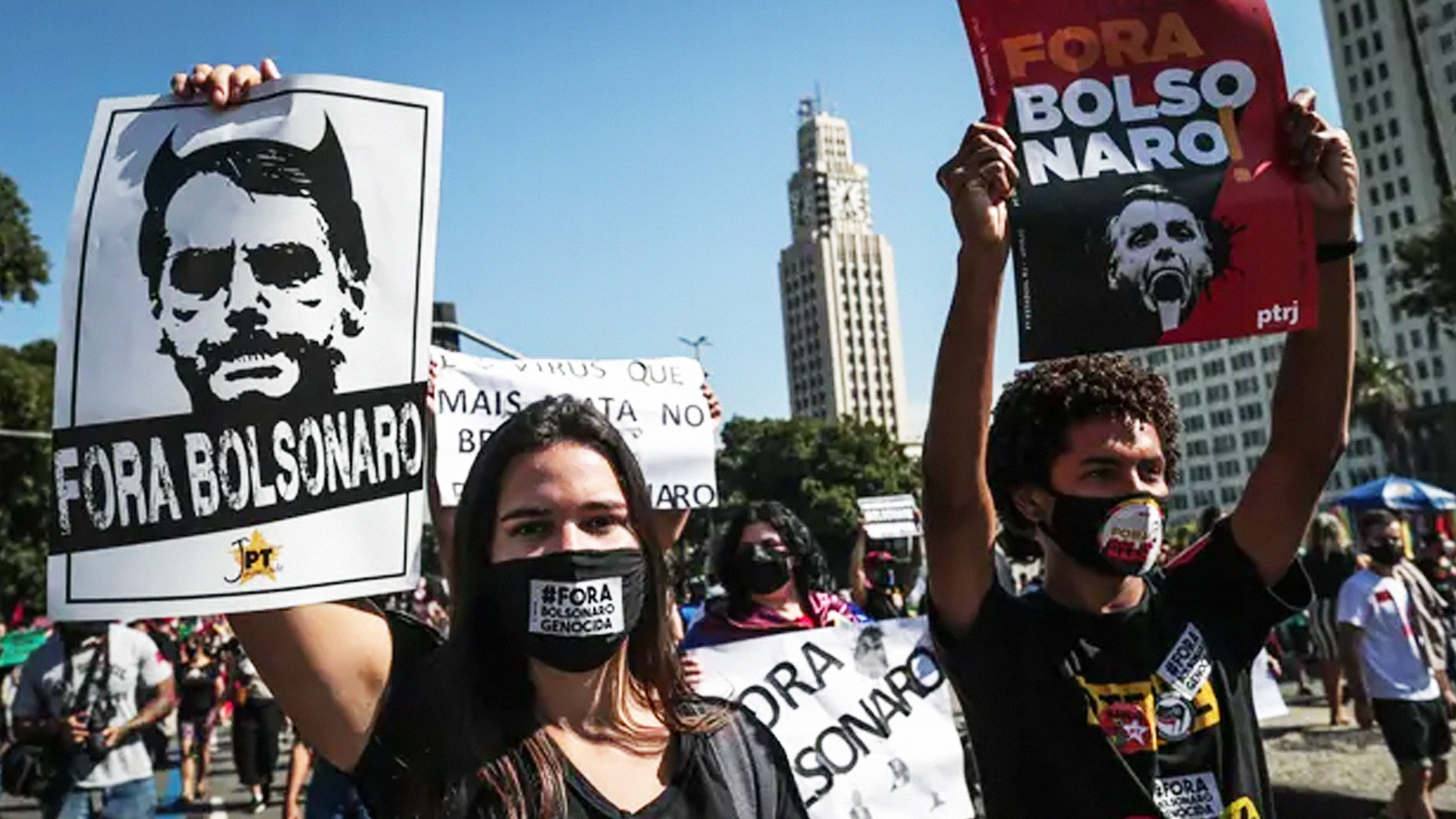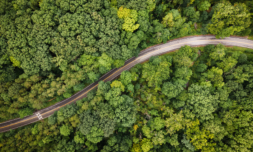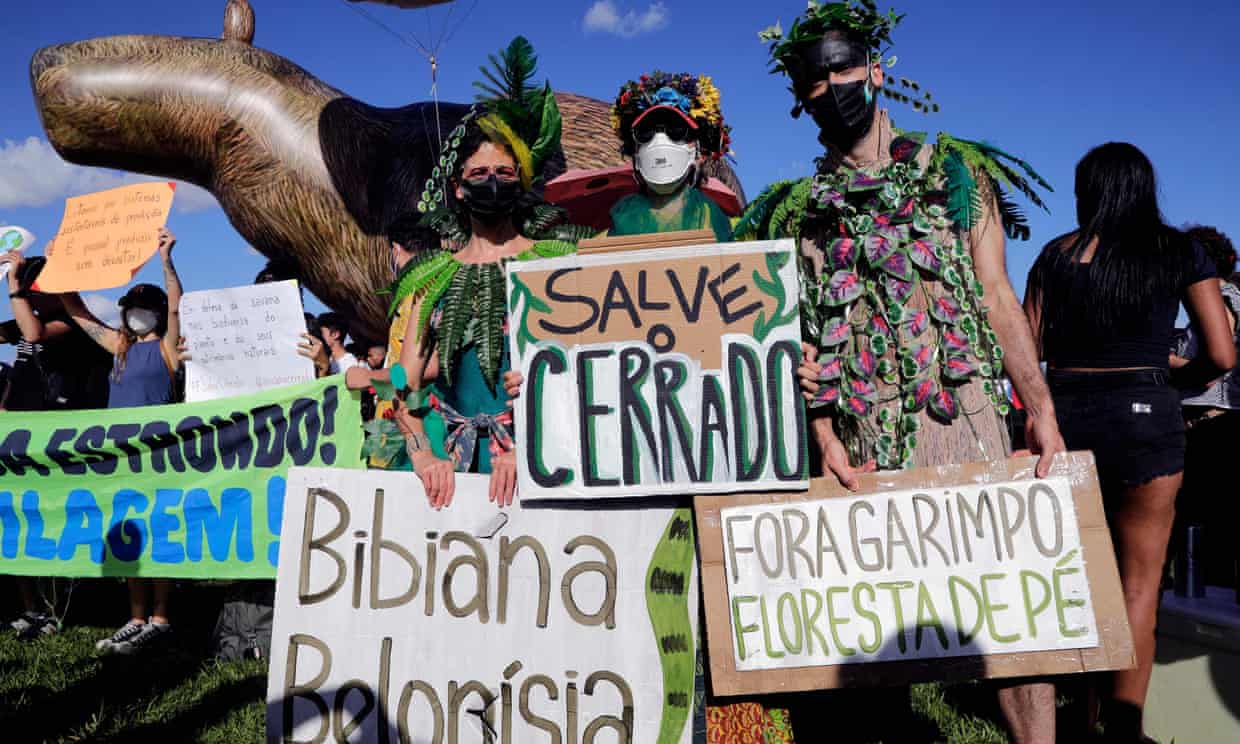Thousands of demonstrators have gathered in the country’s capital to oppose what activists call a ‘death combo’ of five ecocidal proposals being considered by congress.
With Brazil the world’s biodiversity champion, you’d assume its leaders would be at the forefront of climate action. Yet President Jair Bolsonaro, the right-wing ‘Trump of the Tropics’ as he’s been referred to, is flagrantly contrair, responsible for destroying about 10,000 square miles of rainforest (one of the most precious ecosystems on the planet) during the mere three years he’s been in office.
That’s despite committing to ending illegal deforestation by 2030, moving up the region’s date for becoming carbon neutral to 2050, and pledging to double the budget for enforcing the Amazon’s protection at last year’s COP26 summit – all of which have so far proved to be nothing but empty promises fuelled by his ‘blind and destructive mentality’ which Pope Francis warned of back in 2019.
Today, made more alarming by the ever-worsening pressures of our eco-emergency and the fact that Brazil is a key player in the fight against this crisis, thousands of demonstrators have gathered in the country’s capital to oppose what activists call a ‘death combo’ of five ecocidal proposals being considered by congress.
The ‘Ato pela Terra’ (Stand for the Earth) protests were started by internationally renowned Brazilian musician Caetano Veloso, who is urging people to denounce Bolsonaro’s ‘historic assault’ on the environment with the legislations he’s put forward.

If approved (the senate is expected to vote in the coming weeks), the bills would loosen environmental licensing requirements and regulations over pesticide use; boost land grabbers and illegal loggers in the Amazon which, as we now know, is already emitting more CO2 than it’s able to absorb due to the production practices of humanity; and greenlight commercial mining on indigenous lands protected by the Constitution, jeopardising the rights of tens of thousands of indigenous people.
The government is seeking to fast-track this last one, arguing that the Ukraine war has disrupted supplies of fertilisers needed for grain crops.





















